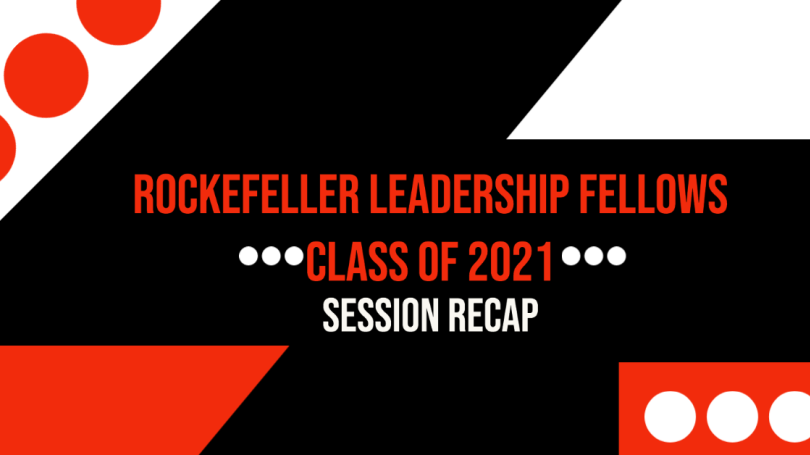
- Public Policy
- Leadership
- Funding
- News & Events
- About the Center
Back to Top Nav
Back to Top Nav
Back to Top Nav
Back to Top Nav
The 15th session of RLF was hosted by Tuck Clinical Professor Curt Welling, who is also an alumnus of both Dartmouth College (1971) and the Tuck School of Business (1977). Professor Welling has decades of experience in both the private and non-profit sectors, upon which he drew to share his understanding of the important of truth with the Fellows. To discuss this crucial topic, concepts important to leadership were introduced, including filters, bubbles, and the philosophical understandings of terms such as truth, knowledge, and belief.
To begin the session, Professor Welling asked the Fellows where they get a majority of their information. The most common answers included social media, friends, and newspapers. He then pointed out that the information in all of these sources is filtered, which means that someone or something is deciding what information is made available and what information is withheld. In addition, everyone lives in an information bubble, where a set of filters limit the information that can penetrate the bubble according to Professor Welling. However, with an awareness of these externally and internally imposed filters and practice, people can learn to overcome these filters and expand their bubbles significantly. This outcome is positive because with larger bubbles, people can be more aware of different perspectives and will be less likely to fall victim to misinformation.
Leaders are frequently called upon to make important decisions with potentially far-reaching impacts. For this reason, it is essential that leaders have all pertinent information available to help them make the right decisions. Although building a strong team and cultivating trust are key parts of developing an environment that is conducive to the flow of accurate information, leaders should also take it upon themselves to be better information curators as well. Professor Welling’s advice on how to expand your personal information bubble was one effective strategy which the Fellows will be able to utilize as future leaders endeavoring to make the best decisions possible. It is always regretful and often avoidable when poor decisions are made due to a lack of accurate or complete information. Leaders with limited personal filters and an awareness of external filters are better equipped to avoid this undesirable event.
In his final remarks, Professor Welling left the Fellows with a couple of insightful and provocative thoughts. First, he reminded the Fellows to be as aware as possible of where they get their information and to challenge their preconceived notions as often as possible. Second, Professor Welling said, “skepticism and uncertainty are greatly underrated in our society.” A good leader knows how to yield skepticism and certainty to their advantage, especially in our age of rampant (mis)information.
-Written by Maria Smith-Lopez, Class of 2021 Rockefeller Leadership Fellow and Student Program Assistant
As Rockefeller Leadership Fellows, seniors gain a better understanding of the qualities and responsibilities expected of leaders. As Fellows take part in the workshops, discussions, and team-building exercises, they examine their skills, qualities, and attributes as leaders and analyze how these influence teamwork and achieving goals.